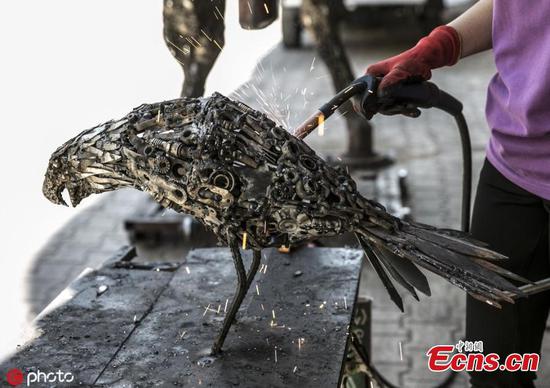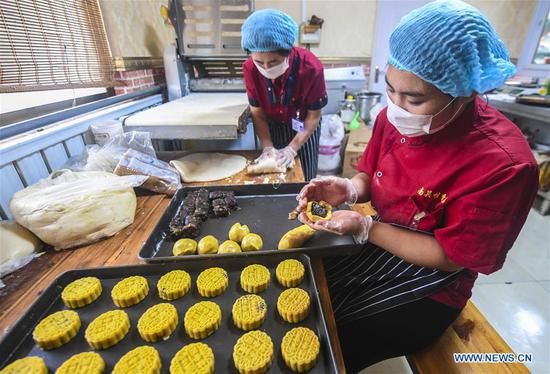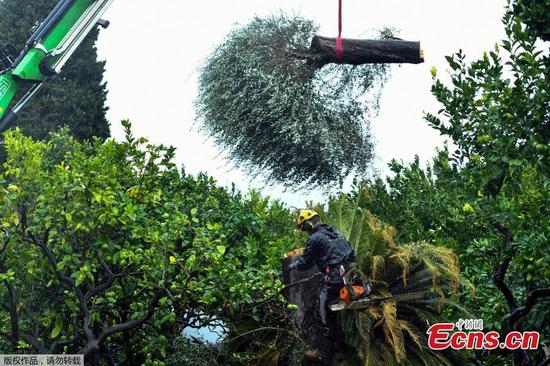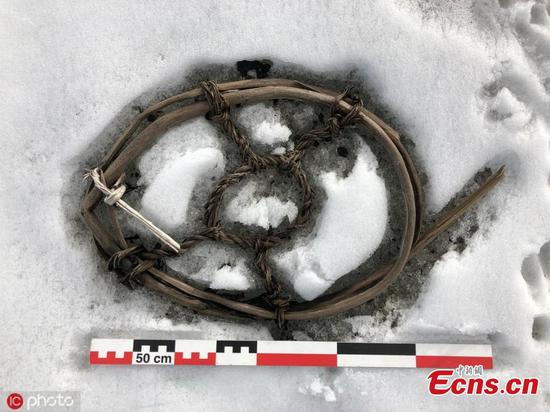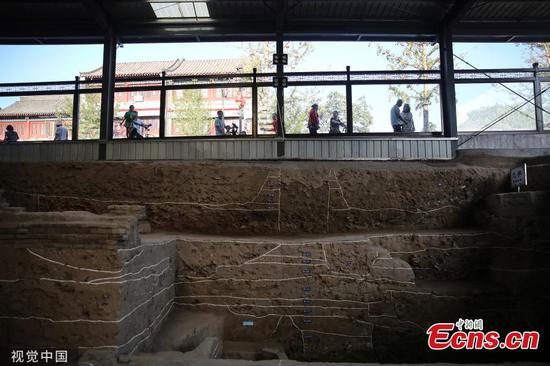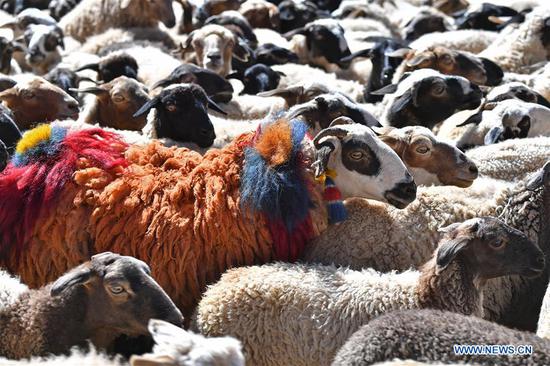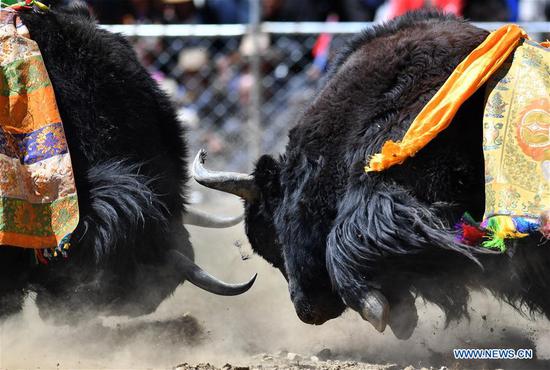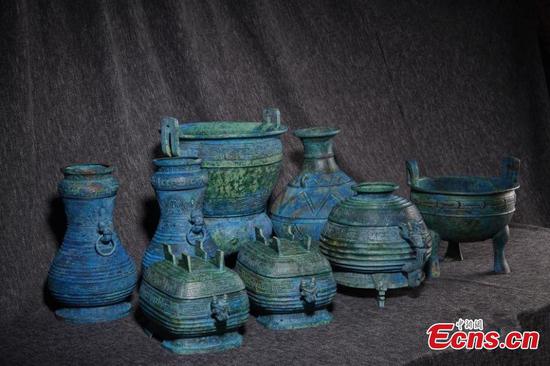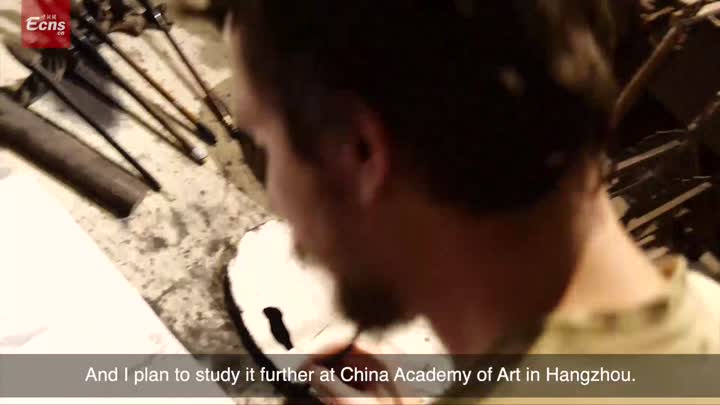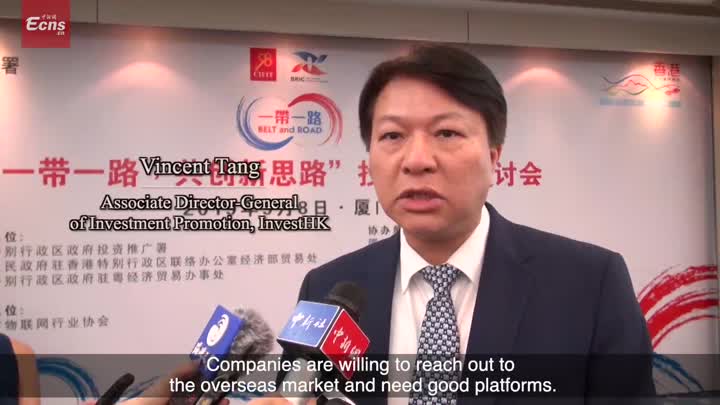China's top anti-graft watchdog will attach great importance to investigating public officers who violate the Party's eight-point frugality code during the Mid-Autumn Festival from Sept 13 to 15 and National Day holidays from Oct. 1 to Oct. 7.
With the two holidays approaching, the anti-graft department at each level will take every precaution and strengthen education for the officials to prevent them from violating the disciplines of the Communist Party of China or laws, the Central Commission for Discipline Inspection of the CPC Central Committee said in a statement on Tuesday.
"Once we discover such cases, we will immediately investigate the involved officials and expose their alleged corruption cases in a timely manner to warn others, securing a clean atmosphere to celebrate the 70th anniversary of the founding of the People's Republic of China," the statement said.
Fighting corruption and tightening self-supervision to rule out luxurious lifestyles and excess bureaucracy on the part of officials have been priorities of the Party since the 18th CPC National Congress in late 2012.
On Dec. 4, 2012, the CPC released its "eight-point frugality code", requiring officials to strictly practice frugality and clean up undesirable work styles, including bureaucratism, hedonism and extravagance. Practices such as the use of public funds to buy gifts, hold banquets and pay for holidays have since been strictly banned.
Figures provided by the CCDI showed that, last year, the anti-graft authority nationwide investigated 92,215 officials who violated the Party's eight-point code, an increase of 27.5 percent compared with the number in 2017.
Between January and the end of June this year, 37,207 officials involved in 26,341 cases were put under investigation for violation of the eight-point frugality code.
Also on Tuesday, the CCDI exposed six typical cases of the violation of such codes involving officials that were found accepting bribes and using public funds for banquets and traveling. Their punishments ranged from a serious intraparty warning to dismissal.
In one case, Huang Jun, deputy head of Pingtang county in Southwest China's Guizhou province, was given a serious intraparty warning and a serious administrative demerit for receiving 30 bottles of expensive liquor, 17 cartons of premium cigarettes and money from 2014 to 2018 when he was in office in the counties of Sandu and Pingtang.
In another case, Wang Ling, general manager of a sales center at the Shanghai branch of China Unicom, one of the country's leading telecom operators, was given a serious intraparty warning and an administrative demerit for reimbursing 3,280 yuan ($460) of dinner and public bath bills. Wang was also found to have committed other disciplinary offenses.
According to the CCDI, anti-graft departments at all levels will beef up supervision and encourage the public to report more clues about the public officials who act with bureaucracy, hedonism or extravagance during the holidays.
Moreover, they will pay attention to cases that involve those who don't restrain themselves and still violate the Party's eight-point rules, or even abuse their power to get involved in graft, especially after the 18th CPC National Congress.












